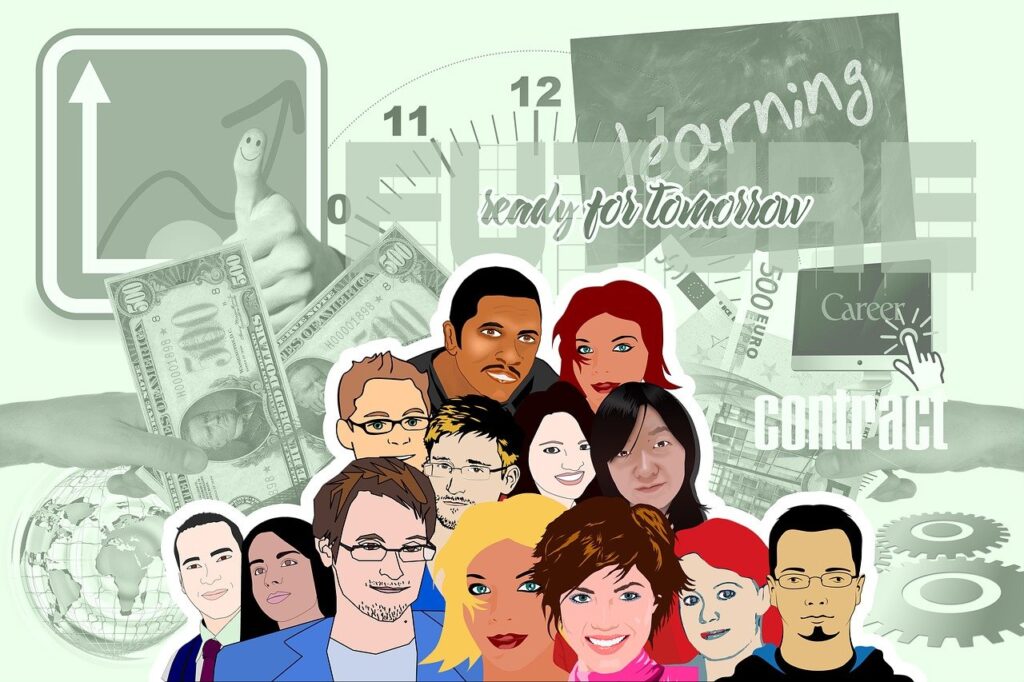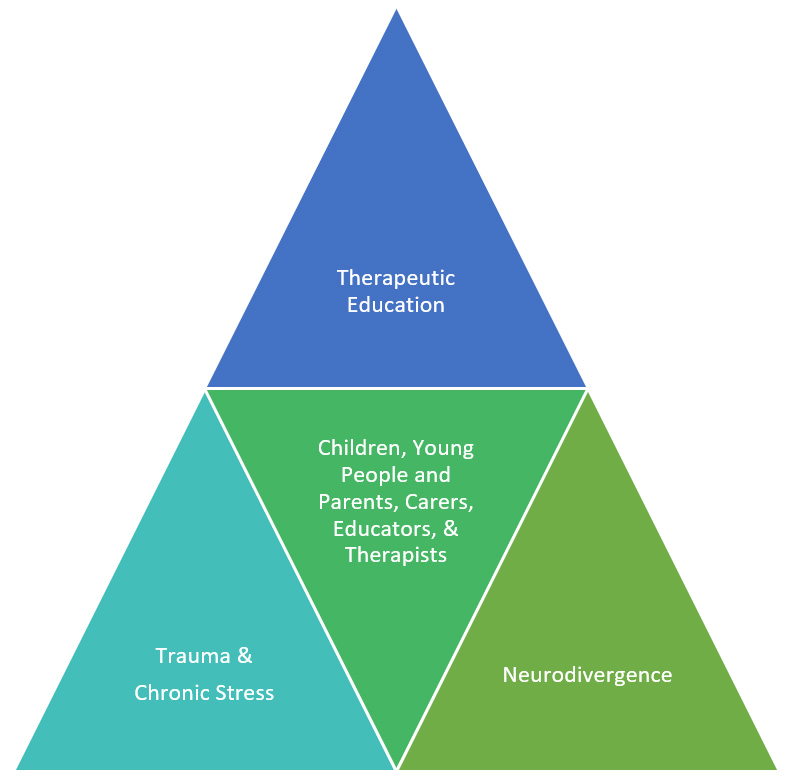T.E.N.T. IS AN EOTAS PROVISION BASED ON POLYVAGAL THEORY:
T.E.N.T. is an acronym for Therapeutic Education for Neurodivergence & Trauma (including chronic stress and attachment issues).
EOTAS stands for Education Other Than at School:
Academic learning and the development of social skills and life skills for children and young people not attending school is a significant challenge.
DO NOT GIVE UP OR GIVE NOTICE ON A YOUNG PERSON (INCLUDING THOSE GOING INTO OR COMING OUT OF A PSYCHOLOGICAL SECURE UNIT), WITHOUT AT LEAST PROVIDING A FUTURE OPPORTUNITY FOR SUCCESS –
Mr P at Be Super knows the challenges you face, he also knows what to do – contact him and experience an authentic solution:
WHAT CHALLENGES DO YOUR YOUNG PEOPLE PRESENT WITH?
Your young person may have neurodivergent challenges; or present with specific social, emotional, or mental health issues. They may have challenging behavioural needs such as autism, ADD/ADHD, speech and language delay, selective mutism, focus and concentration difficulties, PDA, dyslexia, dyspraxia, sensory processing disorder (SPD), memory difficulties, and other Special Educational Needs and difficulties. They may have severe depression, mania, or show signs of various bipolar issues, including psychosis, and they may have suicidal or violent tendencies. All of these may have an unexpected root cause (click here for details)
They may have experienced trauma and chronic stress, or have issues caused by death, separation, abuse and neglect, that may have led to attachment issues. This may have caused chronically high cortisol levels, sleep problems, bed wetting, a lack of mental and physical energy and focus; they may have poor nutrition and be unfit; they be on medication; they may even have had a seizure, a stroke, a heart attack, or a coma. Or they may have severe AUTISM (we can still help).
Victim or perpetrator:
They may have underlying issues as a victim or a perpetrator or even a predator, and this is significant, because it impacts on their conscious and sub-conscious behaviour patterns and triggers. Pre-planned thoughts to self-protect or inflict harm manifest in similar ways but with different outcomes – and it is important to identify what pathway the young person is on – as this has serious implications for risk assessments, therapeutic support and learning – and involvement with others.
If you are involved in supporting such a young person then you know how difficult it is to diagnose correctly, and subsequently provide an effective solution.
Our solution seeks to deal with the root cause of the emotional or mental issue, rather than provide a short term reaction to a recurring behavioural challenge.
Such young people struggle with other people, communication and relationships. They struggle with self-regulation and find it hard to accept co-regulation.
Attachments, detachments and a need to control:
Quite often young people with underlying issues struggle with a particular attachment disorder, and they have a strong need to control their environment. Trust and safety are paramount in their lives – and they need consistency and a loving environment for this to succeed – or at the very least someone that is experienced with providing solutions for mutiple attachment styles. The solution from Mr P starts with identification of THEIR NEEDS – and this goes deeper than the theoretical aspects of Maslow:
Base line analysis:
Mr P offers a PRE-START psychological analysis that factors in trauma, chronic stress, attachment issues and or neurodivergent issues, plus mineral, nutritional and fitness deficiencies. He may also undertake an Emotional Intelligence Quota Test, Heart Rate Variability and Level of Consciousness Test (using Applied Kinesiology). THIS IS FAR BEYOND THAT PROVIDED BY MANY OTHERS. IT TAKES MANY HOURS TO COMPILE AND IT IS DONE USING DATA FROM MANY SOURCES – AND COMPLETED WITHIN 48 HOURS – NOT 6 – 12 MONTHS (OR LONGER).
The solution from Mr P acknowledges that everyone has a ‘Personalistic Norm’ – which means we all have a need to be true and authentic to ourselves; and a desire to find out what this means and for others to respect it.
The solution also clarifies the caring aspect and context of the word Love:
Love means experiencing THE VALUE OF BEAUTY and accepting life AS IT IS and for what it CAN BE, beyond needing to change or use it. Self-love is to know thyself and to be authentic.
It means accepting yourself as you are, and being accepted and valued for who you are. This often means discovering, or uncovering, who you are.
Mr P has many techniques available to support individuals find their uniqueness – and value it.
Mr P seeks to nurture this by providing opportunities for young people to develop self-awareness in an un-challenging manner (and this probably involves not undertaking academic interventions – at least not until they are emotionally resilient enough to want to learn or to be authentic).
Used means the opposite of love. It is to be used or to use someone else against authenticity. It is to feel useless and unknown to self or others, and many young people experience this.
Nutrition, breathing, exercise and social interaction:
Mr P provides a focus on aspects that affect learning but are often overlooked. Aspects that improve sleep, and increase energy and mental focus are crucial, but not normally a part of alternative provision. However, by replacing and balancing that which is lacking (often minerals, vitamins and signalling molecules); and introducing breathing and relaxation techniques and exercise routines (yes both are equally as important); this creates a feeling of safety and trust in the support and provision; and leads to an increase in social interactions and communication. All of these NEED to be in place (or at least aware of), BEFORE academic learning and life skill development can take place. Such provision needs someone to be involved and present during the day, and sometimes in the evening and at week-ends – someone needs to ensure consistency across all time scales so the positive aspects carry over to the main ‘educational/work’ time of day – so the young person may better transition into society as a valued member of the community. This is especially so if the ratio of supporting adults: young person need reducing (and if a DOLS is in place) – such obstacles are often needed, but they also need someone actively seeking to minimise them within realistic safety boundaries. Mr P is prepared to provide a flexible timetable that caters for such provision – and a provision that supports attendance and membership of youth/ peer activities at clubs or activity sessions, in the evening and week-end, and possibly during the day.
Such young people need a consistent figurehead – (the parent who is not there – or someone who may be able to provide perspective and action that is lacking).
Mr P is a specialist educator; a specialist therapist; and someone experienced in nurturing social and life skills. He is also someone who can co-ordinate and manage the additional interactive relationships with parents, family, and perhaps residential support workers or key people in an educational setting – so the solutions and benefits are continued and cumulative.
This is not a provision provided by a normal school environment, or home tutors – and it is often not there fault.
When you look at learning and support from this perspective, it is not surprising that this cannot be provided within a school environment (including a special needs school). Such an environment at best, often only seeks to provide a calming zone, before academic inerventions (and often academic learning is not thought suitable). This may however, provoke the ‘exiled trauma’ and activate the ‘fire fighting and protector’ aspects that provide intelligent internal support systems for the young person to self-regulate – in short it may do more harm than good. They need to be treated with dignity, with fairness and a true authentic strategy to imrpove their life style opportunities.
Don’t struggle finding specialist intervention support – OR EVEN RECONSIDER special schools; if the attendance is virtually non-existence (clearly the provision is not working – or needs further support).
THE SOLUTION LIES WITH SOMEONE THAT CAN NOT ONLY IDENTIFY THESE PROBLEMS – BUT HAS EXPERIENCE IN PROVIDING PRACTICAL SOLUTIONS THAT WORK.
Mr P is such a person – and his work is based on Polyvagal Trauma Theory and endorsed by CAMHS.
Where a child with an EHCP is educated at home, or within a residential care home, (or an environment other than at school – EOTAS), the ‘parents/family/authority’ can apply to take over the funding for education – OR HAVE IT MANAGED BY THE SOCIAL WORKER OR A VIRTUAL HEAD. Securing an EHC plan or EOTAS funding requires support from the social worker and local authority.
When you deal directly with Be Super Ltd, more specifically Mr P (Marcus Pearson), you deal with a holistic specialist that provides for ALL YOUR NEEDS COMBINED – there are so many advantages – ALL OF THE ABOVE PROBLEMS ARE SOLVED IN ONE ALLOCATION!
FOCUS OF DELIVERY:
Howard Gardner, professor of education at Harvard University, suggests that schools and private tutors, primarily educate only two of the eight intelligences described in his book Frames of Mind:
- logical-mathematical intelligence (reasoning, calculating, and experimenting) and
- linguistic intelligence (reading, writing, and speaking).
Mr P can cover these with the core subjects of Maths and English, more specifically, Entry Level 1, 2 and 3, and Functional Skills 1 and 2.
More than this, he will promote the additional learning through a more practical project syllabus and scheme of work. Our alternative therapeutic education (TENT) also nurtures the six other intelligences; and combines them with formal and semi-formal qualifications – Our main three include:
- bodily-kinesthetic (crafting, acting, displaying physical abilities) and
- spatial (imagining, drawing, designing)
- musical (listening, composing, performing on instruments).
We also seek to nurture other intelligences through these qualifications and courses, namely:
6. naturalist intelligences (discriminating, classifying, and nurturing living things)
7. interpersonal (empathizing, negotiating, co-operating) and
8. intrapersonal (self-understanding, reflecting, feeling).
These latter ones are significantly beneficial, as they include our own:
- Emotional Intelligence Coaching and Psychology Workshop and Scheme of Work, and our
- Nutritional, Health and Fitness Workshop and Scheme of Work.
Whenever possible we also try to incorporate these with a peer mentoring and independent living preparation course and Scheme of Work – this is also available as a stand alone supported development.
WHERE DO WE DELIVER T.E.N.T?
EOTAS (Education Other Than at School) is what he provides – and the venue options are endless!
T.E.N.T. is geared for children and young adults who predominantly do not attend a school setting. We have access to a variety of alternative settings, from libraries, to calming centres, sports clubs, to outdoor based environments, and simply engaging and learning whilst walking, driving or sitting in a park or by a river. We can work with you on this, as everyone has their own unique likes and dislikes – nothing is fixed.
We combine becoming calm with positive distractions and 100% therapy – rather than a specific therapy or adademic session. We provide a total therapeutic experience – one that involves feedback from parents, family, and carers. This can be combined with academic learning, life skills and improved social interactions, through emotional coaching and even peer mentoring. If you would like more details on any or all of these approaches please contact Marcus Pearson.
More than Mr P:
Mr P is not alone – he has support, guidance and additional availability from his SUPER Directors and fellow professions. The directors of Be Super Ltd have over 60 years combined experience in certain sectors and we believe this can be of specific help for teams within our FOCUS GROUP A:
- Residential care homes (for both children, young people, adults and the elderly)
- Smaller schools and organisations supporting children and young people with trauma, chronic stress, as well as Autism, ADHD, ODD, Epilepsy, Selective Mutism, DLD, and other developmental challenges and issues.
- Children and young people who are home educated, who need support with academic learning, social interaction and life skills.
- CAMHS teams that seek to transition children and young people out of psychological units back with parents or carers and into education.
- We also support the gifted and talented as much as the more challenged (we run emotional intelligence coaching lessons and peer mentoring).

If you are a key decision maker supporting children and young people who are traumatised, have chronic stress (physical, mental or emotional), or struggle to be educated or socialise in a classroom setting due to neurodivergence – then we provide a dynamic, flexible, personalised provision on a paid basis.
Don’t go through an agency when you can deal with a specialist provider directly – there are so many advantages.
An approach endorsed by CAMHS:
Using polyvagal (PNS) modalities, endorsed by CAMHS, our 100% therapeutic provision will be more effective than a therapeutic lesson approach often offered by schools.
Our therapy is incorporated into the learning / educational environment and forms part of the individual’s assessment (EHCP); and this makes it less intrusive than a ‘stand-alone therapy session’. It makes sense to incorporate therapeutic support ‘with socialising, learning and assessment’ because the aim is to better integrate students into society as much as possible as self-sustaining positive, caring, creative and socially active human beings.
For details of the experience provided by the main deliverer and creator of T.E.N.T., Marcus Pearson – please click below.
T.E.N.T. uses gentler approaches, such as The Trust Technique, The Safe and Sound Protocol (SSP), The Yawning Protocol (YP), Coherence Breathing using HRV monitoring; Art:Binaurual Beats Combined (A2B Protocol), Emotional Freedom Therapy (EFT) and Applied Kinesiology (AK).
T.E.N.T. also uses more active approaches, such as Mirroring, Modelling, and Managing (3 M’s Protocol), or The Play, Move and Distract Protocol (PMD Protocol).
T.E.N.T. IS UNIQUE:
More details including effective use of ED TECHNOLOGY available on request.
For a different version #1 FREE PROVISION – click here.
To find out more or to ask any questions or arrange a meeting:
- 07931 326 164
- Connect with Marcus on LinkedIn
- Or simply enter your email address below to register as a FREE PROVISIONAL VFP Member – we will then be in contact.

Marcus is focused on supporting others better interact with themselves and others.

